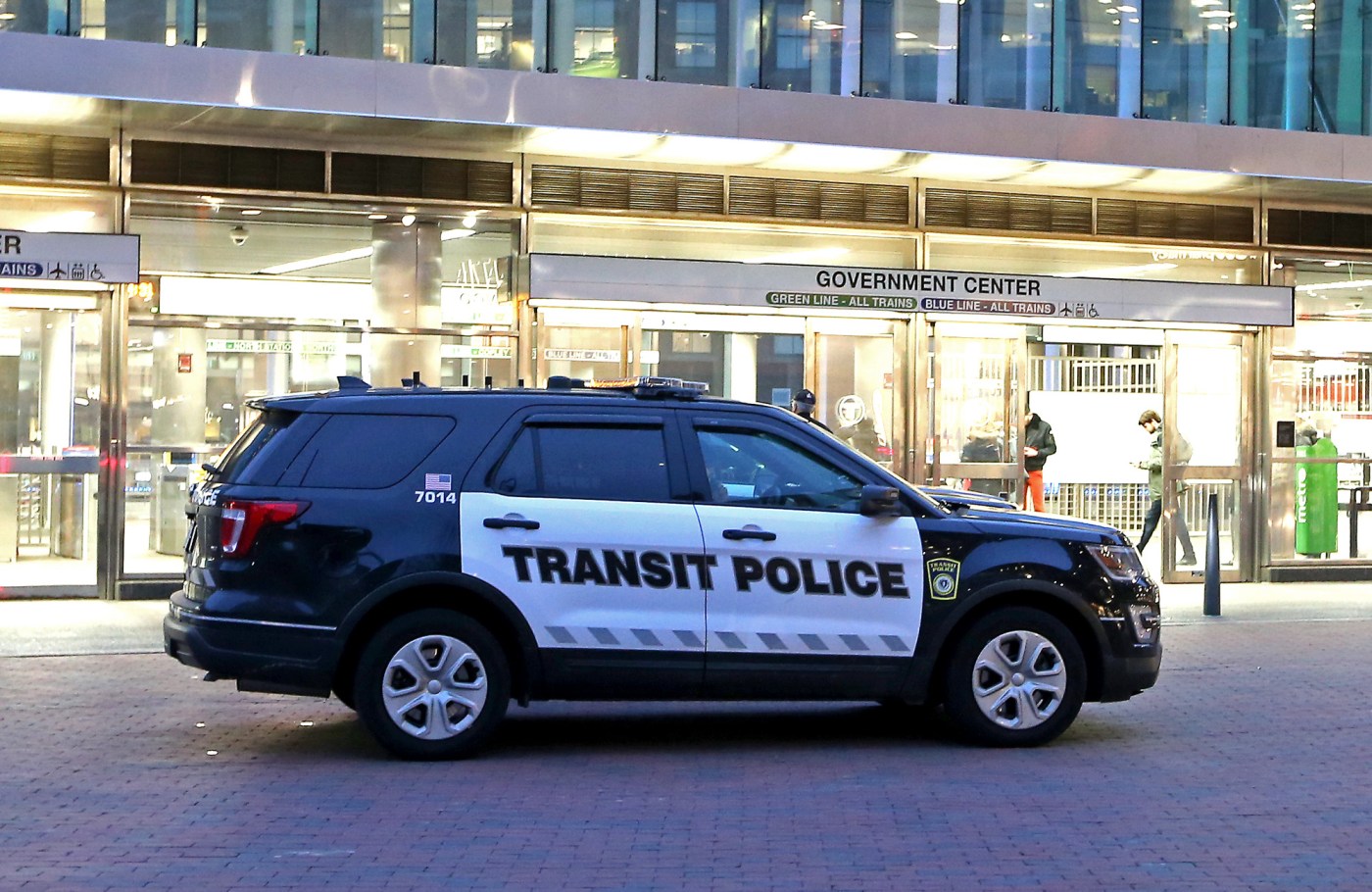
‘Not acceptable’: MBTA police dispatch contract slammed by state watchdog
The state’s top watchdog has concluded that the MBTA showed apparent bias and favoritism when selecting a police dispatch vendor five years ago, saying in a newly released report that two other interested companies were unfairly iced out.
In a Wednesday report, Inspector General Jeffrey Shapiro outlines a number of concerns with the T’s procurement process, pointing to steps that were taken to deter competition from the authority’s favored dispatch vendor, including “problematic” communications between that vendor and a Transit Police committee member tasked with evaluating the validity of all responsive bids.
The report states that the MBTA and Transit Police favored the selected company, IXP Corporation, over two other companies that responded to a 2016 request for proposals. When this bid process did not result in a contract, the MBTA contacted only IXP, and not the two other interested parties, when seeking respondents for a final 2017 procurement.
“Based upon our investigation, significant concerns were raised regarding whether or not the selection process was fair,” Shapiro said in a statement. “Furthering that concern, the MBTA’s poor recordkeeping and records retention practices meant that the authority could not conclusively demonstrate that its selection of IXP was free from favoritism.”
“That is not acceptable,” he said, later adding, “It is essential that the public have confidence in government when it conducts public procurements and expends the public’s money.”
The IGO Internal Special Audit Unit’s investigation found most of the fault lies with the more exclusive final procurement process, but does show apparent unfairness in how one of the companies was informed of its rejection in the first round.
In 2016, the MBTA put out a bid request for police dispatch services on its own business center website, where all companies interested in doing business with the T are notified of new opportunities.
This particular advertisement notified more than 1,000 companies, but few provided police dispatch services. Ultimately, three vendors, IXP, G45 Secure Solutions and the Essex County Regional Emergency Communications Center, responded, the report states.
The MBTA then formed a committee, consisting of one employee from the Transit Police and two employees from the T’s procurement department, to evaluate the three proposals.
While G45’s proposed cost of roughly $1.12 million was lower than IXP’s initial proposed cost of roughly $2.49 million, MBTA employees opted only to meet with IXP representatives to request a “best and final offer.”
Related Articles
Boston to have ‘strong’ police presence at New Year’s Eve First Night celebration
More January closures coming to Green Line Extension
Watchdog flags ‘scary’ MBTA capital needs ahead
Officials warn residents to plan ahead as holiday travel spikes
Commuter rail service to return to Lynn Monday
This final offer, $2.02 million, while still higher than what had been proposed by G45, was deemed by the 2016 committee to be the “most advantageous to the MBTA, with price and other factors considered.”
The MBTA sent letters to both rejected companies, G45 and ECRECC, advising them that the T had found their proposals “to be non-responsible and non-responsive, which was accurate regarding ECRECC’s proposal, but inaccurate as to G45’s proposal,” the report states.
The T’s then-Fiscal and Management Control Board opted not to vote on a three-year contract for IXP in 2016, citing the financial concerns it might present for the MBTA, the report states.
Rather than try for a second vote, the T opted to close the 2016 RFP and issue a new one. This time, however, the request was posted on the COMMBUYS website, where companies interested in doing business with the commonwealth are notified of opportunities.
In this instance, 33 companies interested in police services, including IXP, were sent email notifications, but G45 and ECRECC were not.
In addition, the IGO’s audit unit could not determine how many, if any, of those 33 companies, besides IXP — the only vendor to submit a proposal — were “qualified to deliver police dispatch services.”
The report also notes that interested companies were given less time, 22 days vs. 58 days in the initial round, to respond, and that the 2017 RFP pared down the requested dispatch services, resulting in reduced staffing requirements.
Further, the report points to “problematic” communications between IXP and a Transit Police committee member, that “reflect the Transit Police’s desire to hire IXP specifically and raise significant questions regarding the objectivity of the 2017 evaluation process.”
One such email sent by an IXP employee was deemed to be “impermissible communication,” and could have disqualified the company’s proposal from consideration, the report states.
The report also raises concerns with the lack of transparency around the contract ultimately approved by the Fiscal and Management Control board. Members approved a five-year fixed contract of roughly $4.82 million, but were not informed that a higher rate could be approved for the two “potential option years.”
The final contract cost was roughly $5.51 million, or 14.27 percent more than expected at the time of its execution, the report states.
In a statement, an MBTA spokesperson said the T was appreciative of the inspector general’s report and thankful for his office’s oversight on the matter.
“As we work to restore public confidence under new leadership, we are fully committed to transparency and accountability,” T spokesperson Gabrielle Mondestin said, adding that while the authority has not taken a deep dive into the report, it understands that the document has “identified potential areas for improving record-keeping and procurement processes moving forward.”
“As we continue working to strengthen MBTA operations overall, we remain committed to making appropriate changes that bolster accountability, integrity, and responsible stewardship of funding, including continued improvements in record-keeping protocols and expanded staff training around procurement best practices,” Mondestin added.
Further, she said, “The public deserves assurance that every MBTA project and expenditure is fully compliant and in the public’s interest.”


